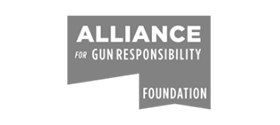North Carolina Law
DOMESTIC VIOLENCE FIREARM PROHIBITIONS
North Carolina Domestic Violence Firearm Purchase and Possession Prohibitions
North Carolina does not prohibit purchase and possession of firearms or ammunition by persons convicted of misdemeanor crimes of domestic violence.
North Carolina does not prohibit purchase and possession of firearms by persons subject to domestic violence protective orders; however, a court issuing a domestic violence protective order may prohibit the respondent “from purchasing a firearm for a time fixed in the order.”1 Additionally, if the court orders the subject of an ex parte domestic violence protective order to surrender firearms, ammunition, and permits (as detailed below), the court shall inform the subject of the order of the terms of the order, including that the subject of the order “is prohibited from possessing, purchasing, or receiving, or attempting to possess, purchase, or receive a firearm for so long as the protective order or any successive protective order is in effect.”2
NORTH CAROLINA DOMESTIC VIOLENCE PROTECTIVE ORDERS FIREARM REMOVAL
Civil Domestic Violence Protective Orders that Require Removal
Upon the issuance of ex parte, or final domestic violence protective order, the court shall order the subject of the order “to surrender to the sheriff all firearms, machine guns, ammunition, permits to purchase firearms, and permits to carry concealed firearms that are in the care, custody, possession, ownership, or control of the [subject of the order] if the court finds any of the following factors:
- The use or threatened use of a deadly weapon by the defendant or a pattern of prior conduct involving the use or threatened use of violence with a firearm against persons.
- Threats to seriously injure or kill the aggrieved party or minor child by the defendant.
- Threats to commit suicide by the defendant.
- Serious injuries inflicted upon the aggrieved party or minor child by the defendant.”3
Additionally, a court issuing a protective order may “[i]nclude any additional prohibitions or requirements the court deems necessary to protect any party or any minor child.”4
Individuals Who May Petition for a Domestic Violence Protective Order
If the court finds that an act of domestic violence has occurred, the court shall grant a protective order.5
“Domestic violence” is defined as “one or more of the following acts upon an aggrieved party or upon a minor child residing with or in the custody of the aggrieved party by a person with whom the aggrieved party has or has had a personal relationship, but does not include acts of self-defense:
- Attempting to cause bodily injury, or intentionally causing bodily injury; or
- Placing the aggrieved party or a member of the aggrieved party’s family or household in fear of imminent serious bodily injury or continued harassment [] that rises to such a level as to inflict substantial emotional distress; or
- Committing an [enumerated] act[.]”*6
“Personal relationship” is defined as “a relationship wherein the parties involved:
- Are current or former spouses;
- Are persons of opposite sex who live together or have lived together;
- Are related as parents and children, including others acting in loco parentis to a minor child, or as grandparents and grandchildren. For purposes of this subdivision, an aggrieved party may not obtain an order of protection against a child or grandchild under the age of 16;
- Have a child in common;
- Are current or former household members;
- Are persons of the opposite sex who are in a dating relationship or have been in a dating relationship. For purposes of this subdivision, a dating relationship is one wherein the parties are romantically involved over time and on a continuous basis during the course of the relationship. A casual acquaintance or ordinary fraternization between persons in a business or social context is not a dating relationship.”7
Removal Process
Upon service of the protective order, the defendant is required to immediately surrender possession of “all firearms, machine guns, ammunition, permits to purchase firearms, and permits to carry concealed firearms that are in the care, custody, possession, ownership, or control of the” defendant.8 If the firearms, machine guns, ammunition, permit to purchase firearms, or permit to carry a concealed firearm cannot be surrendered at the time of service, the defendant shall surrender all firearms, machine guns, ammunition, permits to purchase firearms, and permits to carry concealed firearms that are in the care, custody, possession, ownership, or control of the defendant within 24 hours of service at a time and place specified by the sheriff.9
The sheriff shall store surrendered firearms or contract with a licensed firearms dealer to provide storage.
Compliance
It is unlawful for the subject of a protective order that prohibits purchase and possession of firearms to:
- Fail to surrender all firearms, ammunition, permits to purchase firearms, and permits to carry concealed firearms to the sheriff as ordered by the court;
- Fail to disclose all information pertaining to the possession of firearms, ammunition, permits to purchase firearms, and permits to carry concealed firearms as requested by the court; or
- Provide false information to the court pertaining to any of these items.
Exemption from the Removal Requirement
Law enforcement officers and members of any branch of the Armed Forces of the United States who are the subject of a protective order and who are not otherwise prohibited shall not be prohibited from possessing or using firearms exclusively for official use.
Fees for Storage
“The sheriff may charge the [subject of the petition] a reasonable fee for the storage of any firearms and ammunition taken pursuant to a protective order.”
Return of Firearms to the Subject of the Petition
At the expiration of a protective order or final disposition of any pending criminal charges committed against the party protected by a protective order and not later than 90 days after the expiration of a protective order or final disposition of any pending criminal charges committed against the party protected by a protective order, the subject of the order may make a motion for the return of any surrendered firearms, ammunition or permits. Upon receipt of such a motion, the court shall schedule a hearing and provide written notice to the petitioner who has a right to appear and be heard and to the sheriff who is storing the surrendered firearms, ammunition, or permits. At the hearing, the court shall determine whether the subject of the protective order is prohibited under state or federal law from owning or possessing a firearm. Inquiry at the hearing shall include:
- Whether the protective order has been renewed;
- Whether the subject of the protective order is subject to any other protective orders;
- Whether the subject of the protective order is disqualified from owning or possessing a firearm under state or federal law; or
- Whether the subject of the protective order has any pending criminal charges, in state or federal court, committed against the person that is protected by the current protective order.
If the subject of a protective order does not file a motion requesting return of surrendered firearms, ammunition, or permits within the time period above, if the court determines that the subject of the protective order is prohibited from regaining possession of surrendered firearms, ammunition, or permits, or if the subject of the protective order fails to pay all fees owed for the storage of the firearms or ammunition within 30 days of the entry of the order granting return of the firearms, ammunition, or permits, the sheriff who is storing such firearms, ammunition, or permits shall give notice to the subject of the order and apply to the court for an order of disposition. The court, after a hearing, may order the disposition of the firearms, ammunition, or permits, in any way authorized by law, including the following ways:
- By ordering the weapon(s) to be destroyed by the sheriff or the sheriff’s duly authorized agent if the firearm does not have a legible, unique identification number or is unsafe for use because of wear, damage, age, or modification;
- By ordering the weapon(s) to be turned over to a law enforcement agency for (a) official use of the agency, or (b) sale, trade, or exchange by the agency to a federally licensed firearms dealer;
- By ordering the weapon(s) to be turned over to the North Carolina State Crime Laboratory’s weapons reference library for official use;
- By ordering the weapon(s) to be turned over to the North Carolina Justice Academy for official use.
Penalties for Violation
Any person who possesses, purchases, receives, or attempts to possess, purchase, or receive a firearm, machine gun, ammunition, or permits to purchase or carry concealed firearms in violation of a protective order shall be guilty of a Class H felony.



